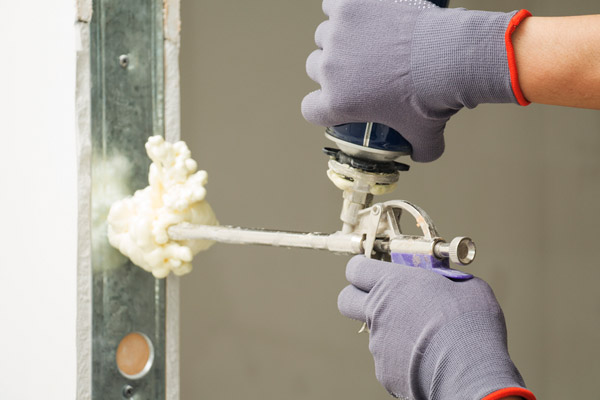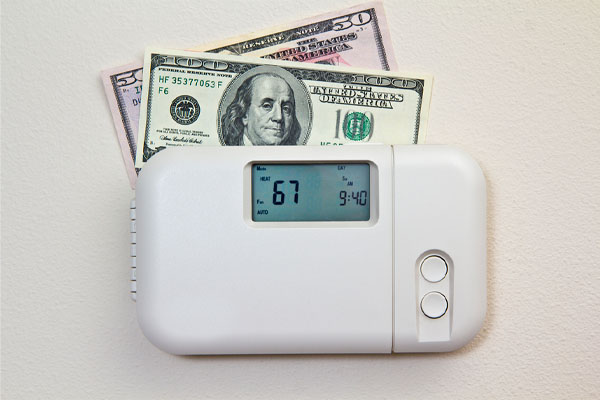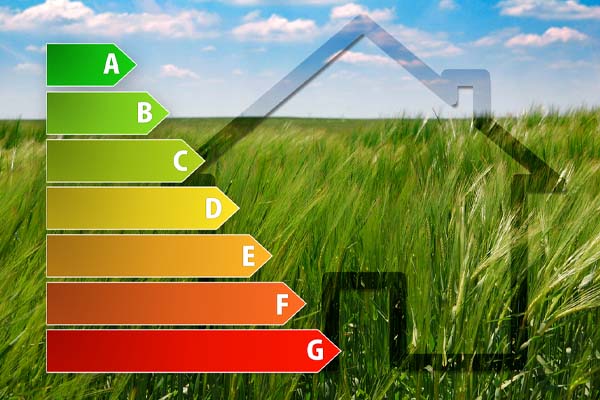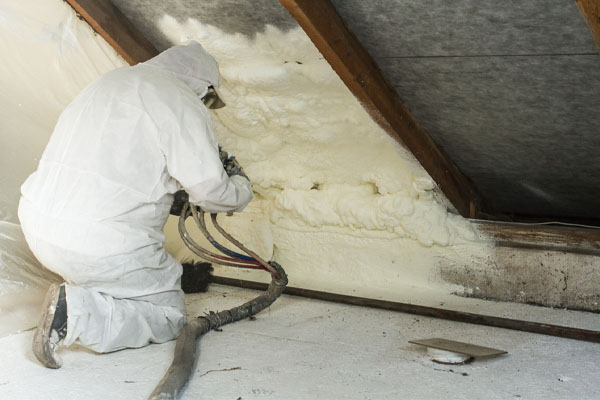How Thick Does Spray Foam Insulation Need To Be?

You may have a comfortable pillow, bed, recliner, and couch. How about the air in your home? It can be as comfortable when your home is air-sealed with spray foam insulation.
What is considered ideal spray foam insulation thickness? It depends on where you apply it and what you want to achieve. Before we answer the question, it is crucial to discuss the importance of air sealing, R-value, and the two main types of spray foam.
Why Should I Seal My Home With Spray Foam Insulation?
Contents
Air sealing is essential to keeping the air in your home as comfortable as possible. You want to protect your family from the cold winter breeze and the hot summer temperature. However, there are three more important reasons to use spray foam:
1. It Helps the HVAC System Run More Efficiently

Air leaks in your home allow cold or warm air to enter and disrupt the cooling or heating process. When the heat goes up, it forces the air conditioner to work even more to maintain a cooler temperature. If the temperature drops, it causes the furnace to provide more heat. An air seal can prevent air leaks and reduce HVAC strain.
2. It Lowers Energy Consumption & Cost
An air seal provides your home with a barrier against the elements from the outside. It produces better living conditions and saves on energy bills, as well. By preventing the entry of cold or warm air inside your home, the air seal prevents the overuse of the HVAC system. The furnace does not have to burn fuel longer. The AC does not have to cool the air more often.
3. It Prevents Moisture From Seeping Into Your Home
Air travels from high-pressure areas to low-pressure areas. If your home is not air sealed, moist air can travel in and out and cause moisture issues and mold. By using spray foam insulation, you can prevent moisture from seeping into your home.
What Is R-Value?

The R-value is the measure of an object’s resistance to heat flow. A higher R-value equates to higher heat resistance. Materials that are more resistant to heat can provide better insulating properties.
For example, a styrofoam cooler has a higher R-value than a plastic bag. It means that it can keep objects cool or warm for a more prolonged period. The same principle applies to a Thermos vacuum flask. The rate of insulation is in terms of R-value per inch. It represents how effective each inch of an object is at insulating. Materials with a higher R-value are more effective.
The spray foam has one of the highest R-values in the insulation industry.
Two Main Types Of Spray Foam
The two main types of spray foam may look similar but have different properties and end-uses.
1. Open-Cell Spray Foam Insulation
This type has a lot less foam material than closed-cell foam, resulting in a lower R-value. Its thickness expands to approximately 3 inches after application. Its R-value falls around 3.5 to 3.6 per inch for a total of approximately 10-11 after it expands. It is best suited for soundproofing and economical insulation in areas with milder climates.
2. Closed-Cell Spray Foam Insulation
This foam is much denser as compared to the open-cell spray foam. The R-value is around 6.5 to 7 per inch. It is ideal for homes in areas that require higher thermal resistance, such as homes in Colorado.
Because it is denser, it can expand to only about an inch thick. Multiple applications can lead to a higher R-value. Essentially, it is best to use closed-cell foam in areas with extreme temperatures.
How Thick Does Spray Foam Need To Be?

As mentioned earlier, the thickness depends on where the foam is applied and what you want to achieve.
In general, here are the recommended thicknesses:
For Open-cell Spray Foam:
- Roof deck Or ceiling: 6-10 inches thick
- Walls: 3 inches thick
For Closed-cell Spray Foam:
- Roof deck or ceiling: 4-5 inches thick
- Walls: 2-3 inches thick
The recommended thickness gives you the most cost-effective air seal and thermal resistance. A professional spray foam insulation company will be able to determine the best thickness and type for your situation.
Diminishing Return On Value
Most homeowners think that the insulation properties of foam increase with much higher thickness. Hence, they request 10 to 12 inches of closed-cell foam for their roof deck insulation. They think that more foam equals a higher R-value. However, it does not always work that way. There is a threshold for effective thermal resistance. Going past the recommended thickness does not provide better insulation. It only leads to wasted money and a diminished return on value.
Last Words
What you want to achieve is an air seal and an effective thermal resistance for your home. By using the right type of spray foam, the thickness required, you can achieve an application that works to meet your goals. Adding more foam to the recommended thickness only diminishes the return on value. However, a reputable spray foam insulation contractor will be able to determine what is the best solution for your home.
Contact Ascend Construction For All Of Your Insulation Needs

If you are interested in learning how to reduce your energy costs and improve your comfort levels, give Ascend Construction a call today. Our team of energy experts specializes in energy audits, insulation, whole-house fans, and more. We can provide you with practical solutions to address the problem areas in your home. All of our services are affordable and our work is guaranteed. Give Ascend Construction a call today to schedule a free, in-home consultation.